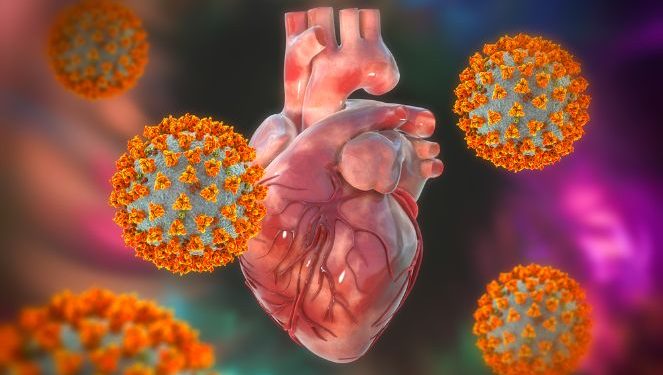Myocarditis symptoms depend on the cause of the inflammation, but most people recover without any long-term negative effects on their heart.
Affected people often experience a sudden onset of chest pain or shortness of breath, and their heart rate may increase. This is similar to what you would expect from a heart attack, so if you experience any of these symptoms, seek emergency medical help.
Most people who have myocarditis start to feel better within a couple of weeks. However, in severe cases, it may take months for the damage to the heart muscle to clear up.
Symptoms of myocarditis can be hard to spot and sometimes appear as part of another health problem, such as a respiratory infection or a bad case of the flu. A health care provider may suspect myocarditis when they hear a rapid or abnormal heartbeat while listening to the child with a stethoscope, or when they see fluid in the lungs or swelling in the legs.
If a myocarditis diagnosis is suspected, the doctor will usually perform a physical examination of the patient and check their vital signs with a heart monitor. They will also perform a chest X-ray to look for enlargement or swelling of the heart.
The most accurate way to diagnose myocarditis is with a biopsy, where a small sample of heart tissue (called a biopsy) is taken and examined under a microscope. This is done through a procedure called cardiac catheterization, where a long tube is threaded through a vein and into the heart to take measurements or collect a tissue sample.

Diagnosis of myocarditis can be made when the doctor sees characteristic features on an MRI scan, particularly the presence of new heart wall motion abnormalities and evidence of inflammation of the pericardium (the sac that surrounds the heart). A biopsy does not always lead to a confirmed diagnosis of myocarditis but can be helpful in more severe or complex cases.
Inflammatory diseases such as systemic lupus erythematosus (SLE), rheumatoid arthritis and ulcerative colitis can also lead to myocarditis in some children. It is thought that the immune response to these conditions can cause an overactive inflammatory response in the heart.
Some types of myocarditis, such as those caused by the bacterium Chagas’ disease, can have long-term complications that can lead to heart failure in many people. This is most common among travelers to or immigrants from Central and South America who have had an initial infection, but can occur in some patients even years after the initial infection has resolved.
Typically, the immune system will fight off infections and other causes of inflammation that lead to myocarditis, and then the body’s natural healing process will restore the normal function of the heart. In autoimmune disorders such as SLE, rheumatoid arthritis or ulcerative colitis, the body’s immune system may not be able to recognize the invader and fight it off properly.
The cause of an acute case of myocarditis is unknown 50% of the time. This is referred to as idiopathic myocarditis, and it is often not discovered until a long time after the symptoms begin.









